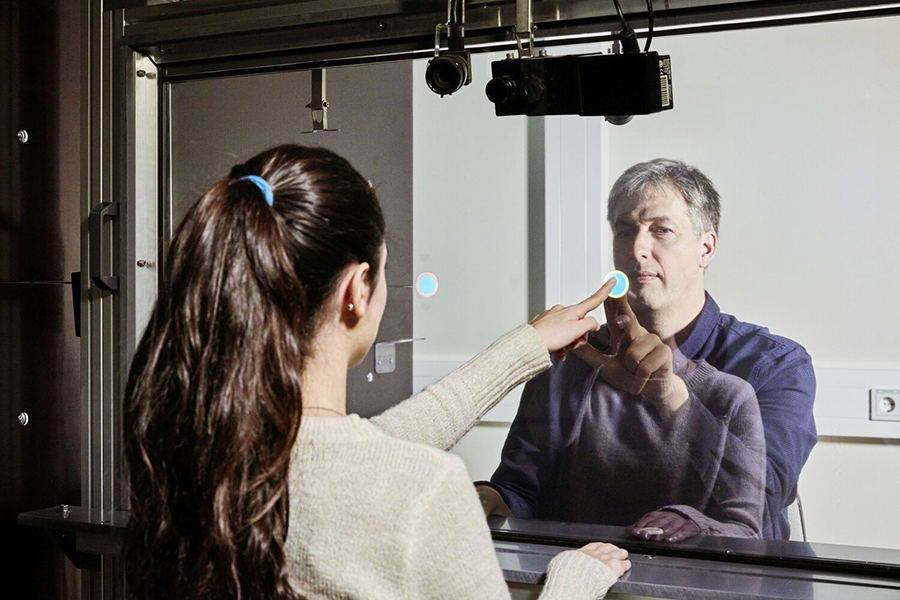Deciphering the behavior and neurobiological basis of social interaction
German Research Foundation DFG will fund new Collaborative Research Center at Göttingen Campus with approximately 12.5 million euros.

Two test persons can react to each other on a transparent touchscreen. Photo: German Primate Center.
Bernstein member involved: Alexander Gail
/pug/ BN/ As of 1 January 2022, the German Research Foundation (DFG) will fund a new Collaborative Research Center (CRC) of the University of Göttingen and its partners at the Göttingen Campus entitled “Cognition of Interaction”. The funding will amount to approximately 12.5 million euros for an initial period of four years. At the SFB, 24 scientists from the neurosciences, behavioral and cognitive biology, psychology and data sciences will investigate the special demands that social interactions place on our cognitive abilities and thus on the performance of our brains. In addition to the University, the partners involved are the German Primate Center – Leibniz Institute for Primate Research (DPZ), the European Neuroscience Institute Göttingen, the Max Planck Institute for Dynamics and Self-Organization, the Society for Scientific Data Processing Göttingen, the University Medical Center Hamburg-Eppendorf and the Weizmann Institute of Science in Rehovot, Israel.
Primates, which include all apes in addition to humans, are highly social creatures who live almost exclusively in groups and form close social bonds. Social interactions are the basis of our community life. They are the prerequisite for cooperation and learning from each other, as well as for competition and the avoidance of conflicts. However, the special demands that this places on our cognitive abilities and thus on the performance of our brain are still largely unknown. The CRC is trying to close this gap.
Social interactions in particular are characterized by distinct dynamics, as the partners continuously adapt their behavior in response to each other. How these dynamics and the many factors to be taken into account are processed in the brain, how we control attention, plan actions and deduce decisions from them, is still largely unclear. Similarly, there are many unanswered questions about the evolution of these abilities and how they develop during adolescence. “This is due to conceptual and, in part, technical challenges,” Gail explains. “Many studies we are planning now would not have been possible a few years ago because the necessary technical resources and appropriate theoretical models were lacking.” That’s why psychologists, behavioral scientists and neuroscientists will collaborate very closely with theoretical neuroscientists and data and computer scientists in the CRC. “We want to bring behavioral and neuroscience data together on an unprecedented scale in order to understand how our brains help us correctly predict future behavior of others,” Gail said.
Following the authorization of the “Human Cognition and Behavior” research building this year, the success of this subject-related CRC is another major milestone which underpins the significance of the focal topics of neuroscience and primate cognition at the Göttingen Campus.




